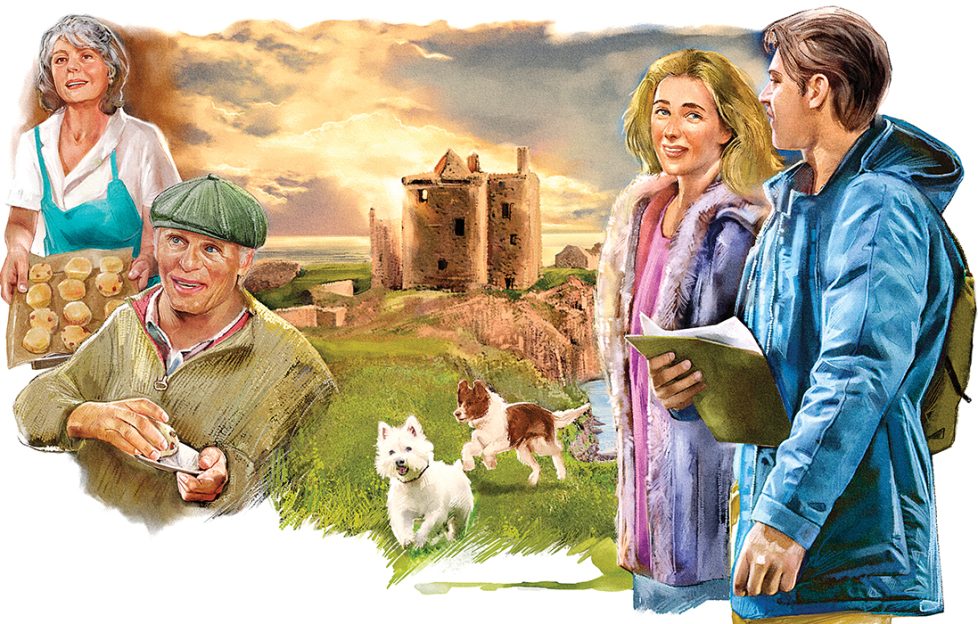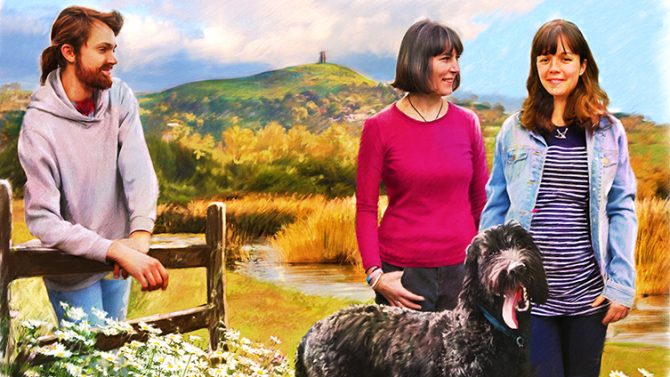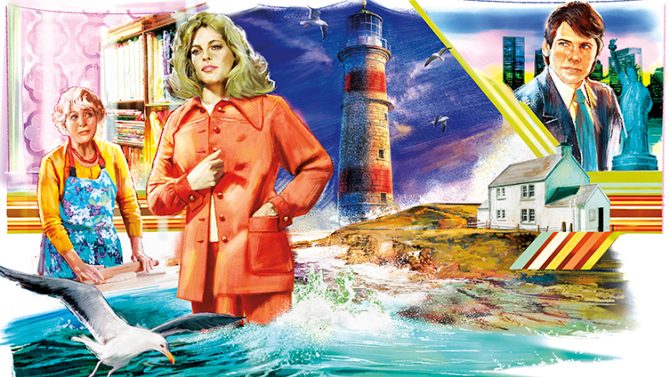There’s Always Tomorrow – Episode 13

There's Always Tomorrow by Mark Neilson
« Previous Post- 1. There’s Always Tomorrow – Episode 01
- 1. There’s Always Tomorrow – Episode 13
The empty village shop was getting on Lorna’s nerves. With her hands too sore to help Wullie in the garden, she was idle now that her housework was completed.
She put on a jacket and wandered up the village street. The shop window, under its layers of circus posters, drew her like a magnet.
She frowned. Once, this shop had had a purpose, offering a service to the local community. Now it was an eyesore.
Nobody seemed willing to do anything about it, whether that be to buy it from its one-time owner and reopen it, or try to clean up some of the mess.
Wullie had told her that it was crazy even to think of reopening it, because it would never generate enough turnover to make a profit.
But she wasn’t interested in profit, only in providing a local service to an elderly community.
Lorna walked on to the end of the village, then out along the quiet single-track village road into the countryside beyond.
The sweep of the fields and the sound of the crows calling over the small plantation of trees should have soothed her.
She inhaled the crisp air, and stopped to look around the undulating horizon.
The Mearns. She must buy “Sunset Song” and read it again.
It was no use: she simply couldn’t settle into the peace and quiet, lovely though it was.
Lorna was a doer, and when something annoyed her it was in her nature to tackle it head on.
Already she was realising that retirement wasn’t what she had expected, with many empty hours to fill.
She needed a project – something to take up her energy while she adjusted to her new life.
The empty shop was a challenge, and she had always relished challenges.
If nobody else was going to do anything about this problem, then she would.
Striding back to her cottage, she called in Wullie for a cup of tea.
At least he’d changed his socks, she noticed. Only one toe was peeping through an emerging hole in this pair.
She sighed. If she bought him a new pair of socks, he would simply put them into a drawer “for best”. For church on Sundays – or to be buried in them.
“That shop,” she began. “There has to be a way of running it. Maybe as a local co-operative, where everybody agrees to use it so that it covers its costs.”
“There’s a Co-op in Bervie,” Wullie said, helping himself to a biscuit.
“Not that kind of Co-op. The way they emerged in the nineteenth century, when customers took buying and selling basic foods into their own hands, because they knew the mill owners’ shops were ripping them off.”
“Before my time,” Wullie mumbled.
“I’m going to research it,” she said determinedly.
“Right,” Wullie said. “There’ll be nae stopping you.”
He looked as if he was about to take another biscuit, then changed his mind.
She lifted the biscuit from its plate and handed it to him.
“Where can I find a library?” she asked. “One with reference books.”
He looked guiltily at the biscuit, then took a bite.
“Montrose,” he said through the crumbs. “There used to be a right good library in Montrose.
“But the wifie that ran it was affa’ strict. If you talked at all, she sat and glowered at you.”
“What’s glowered?” Lorna asked.
The biscuit stopped halfway to his mouth.
“Glared. Looked at you ferocious-like. Why don’t you English understand plain English?”
“Because it isn’t English,” she snapped. “It’s Scots. A foreign language.”
Wullie shook the remains of the biscuit at her.
“Hang on, who’s the foreigner here?”
She opened her mouth to argue, then saw his eyes twinkling. He was winding her up.
“Oh, dear.” She sighed. “Guilty as charged. Sorry. Where’s this library of yours in Montrose?”
He stuck what was left of the biscuit into his mouth in his haste to answer.
“Where it usually is,” he replied, then rose to get on with his digging.














